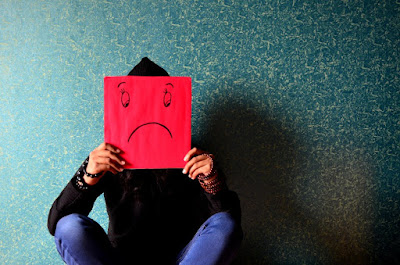Recently I shared an op-ed on social media calling out a celebrity who had a history of untoward behavior and had sexually harassed the author of the op-ed when she was underage. Right away, a friend came to the defense of the accused, claiming she worked with him on a project. He was nice to her, so therefore he can't be a creep. The author's probably lying.
After a long facepalm, I took a breath, and responded to my friend.
"I encourage you to reconsider that the person you worked with could be as {the author} describes. I don't know him at all and I've never met {the accused}, but I do know a lot about the nature of abuse. When someone speaks up about sexual abuse, odds are over 90% they are telling the truth. Abusers don't usually sit around twirling their mustaches. They are often charming people much of the time. I know someone who was babysat by the Manson family. They were good babysitters and she wasn't harmed, but her experience of them doesn't negate that the Mansons went on to murder a bunch of people. Unless you were under age when you worked with him, I would respectfully like to point out that her experience is not the same as yours."
And then came many more comments. Some supported me. Others insisted the issue was a political one. Mansplainers came forward to mansplain. The "just suck it up" choir sang their song. While most agreed the man was "probably" at fault, some could not get behind the victim. "Sure there's a long, well-documented history of abuse on this person. Sure, she has eyewitness testimony. Sure, she has absolutely no reason to lie. But..." and then they would point out some unrelated minutia to discredit her.
Why do people assume if they have any perceived notion that they "know" someone, they couldn't possibly be abusive? Why, in cases of sexual harassment, are people so quick to blame the victim?
I have a hunch it has to do with lawyers shaping the public narrative based on what's familiar. Remember the McDonald's coffee incident where the woman sued McDonald's over spilling coffee in her lap? Often considered the ultimate frivolous lawsuit, it seemed the entire world was in on the job of shaming and mocking the old woman who was dumb enough to not know that coffee is hot. But there's more to that story. A lot more.
What I find interesting about the McDonald's case is that public perception of the incident overwhelmingly thought the woman was in the wrong, even though the jury awarded the judgment in her favor. McDonalds is a well- known brand, and the public was much more willing to defend something they know than to look at the facts objectively.
All too often, the outrageous defense arguments in rape cases get into the zeitgeist, skewing perception. Men worry that they will be inexplicably falsely accused of rape when they've done nothing to provoke it. While that fear is statistically and grossly unfounded, the notion that a false accusation "could happen" seems to take precedence over the thousands of cases where women have actually been raped.
Someone can be a "good guy" for their entire life, until the day they decide to walk into a crowd and start shooting people.
Someone can be "a nice person" most of the time, and still be guilty of sexual assault.
It's time to change public perception. It's time to believe people when they speak up. It's time to think critically. It's time.

Comments
Post a Comment